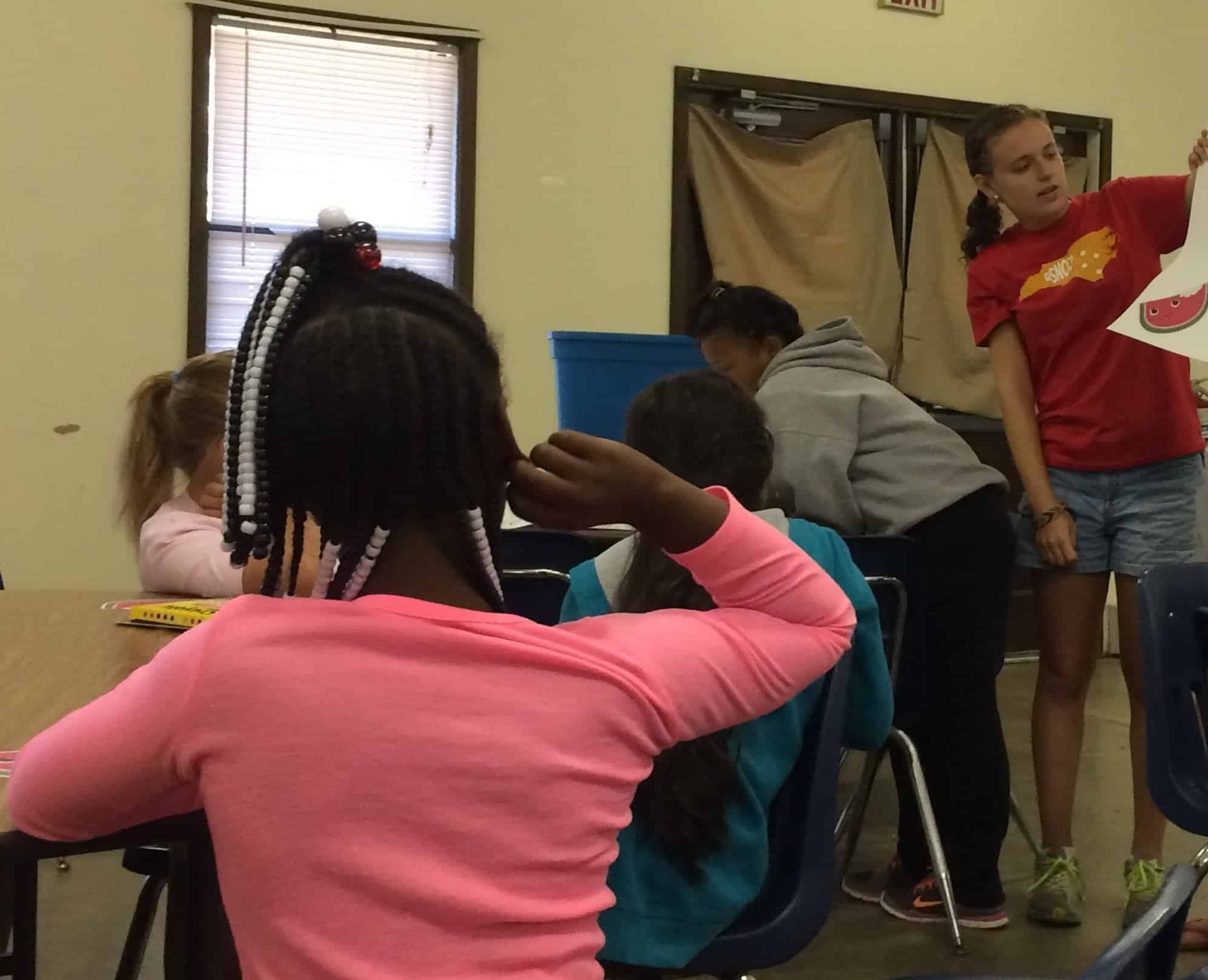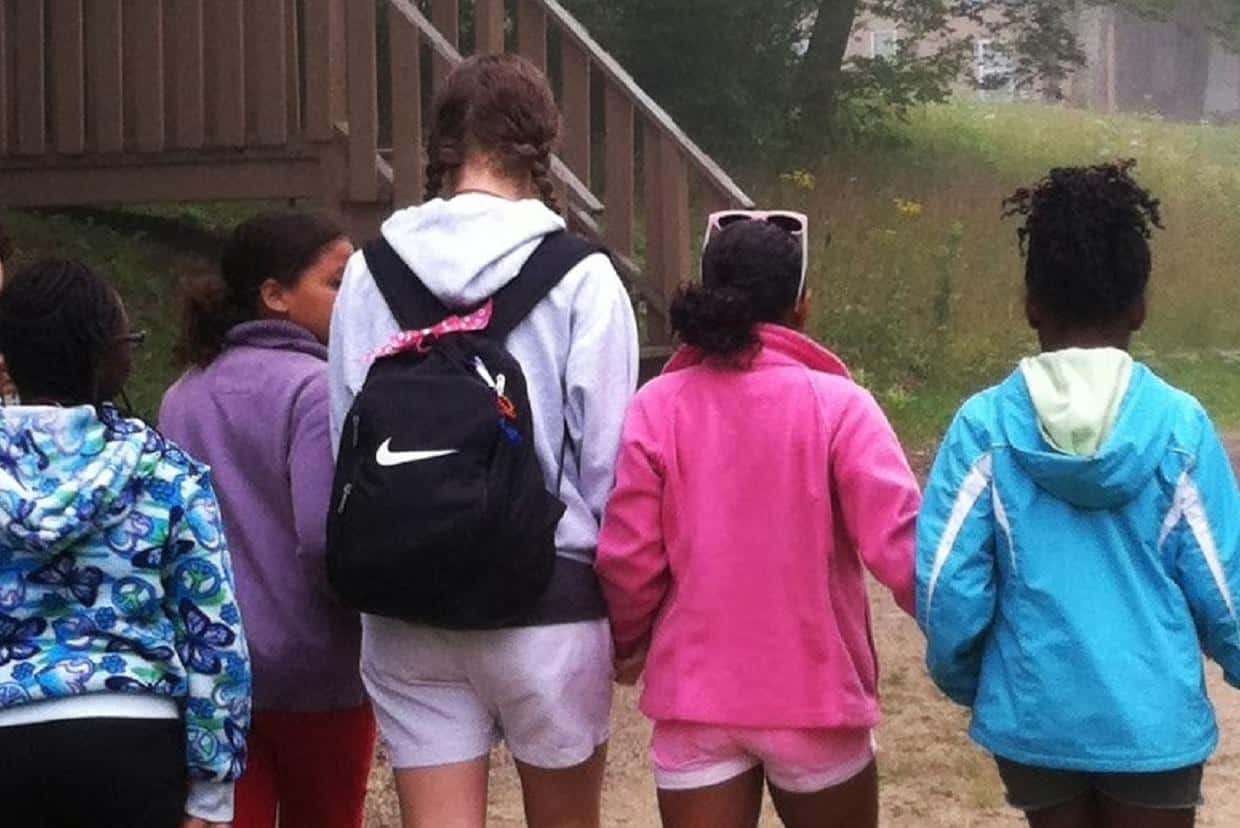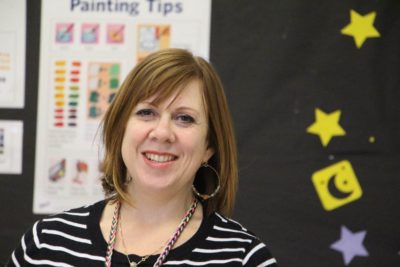From a young age I thought that teaching was “cool,” but never considered the career until recently when I reflected on how many of my current and former teachers have positively impacted me.
As a high school senior, I chose to serve as a teacher’s assistant in Bryan Christopher’s standard English I class during my first semester so I could learn more about what it’s like to be a high school English teacher. Throughout the semester I edited the essays the freshmen students wrote each week and provided feedback for them about how they could improve their writing.
I also observed other English teachers and learned about their different teaching styles. I became aware of why many of these teachers got into the profession of education and found that for almost every teacher I observed, they became educators because they were inspired by their teachers while they were in school. I can definitely relate.
I have been inspired by many of my teachers. Bethany Phillis showed me in her Honors English II class that analyzing literature can be fun and a lot easier than I thought. By having us watch the movie Les Miserables and analyzing the many different plots, characters, and conflicts in the movie. To this day, that lesson is the most memorable lesson from my time in school. Her enthusiasm and love of language inspired me to become a teacher like her.
I see myself in many of my teachers. When I sit in Mira Rahili’s AP English IV class, I imagine myself with the same fire and passion for educating students that she brings each day. I want to make seemingly boring topics interesting to my future students in the same way that she made Hamlet and Paradise Lost interesting to me. When I serve as a teacher’s assistant in Mr. Christopher’s class, I hope to be as patient with my future students as he is with them. I hope to choose my battles with my students and to understand like he does that there may be situations going on at home that I may not know about that are affecting my students. When I sat in Steven Unruhe’s AP Calculus AB and AP Calculus BC classes, I was inspired to make the school environment fun in the same ways that he had his students take walks around the Unit Circle (which actually just means to take a walk outside) or by teaching his students how to juggle after their AP tests. I pray that I can inspire my future students to not give up on their studies even when the topics get difficult similar to how Mr. Unruhe inspired me to not give up on Calculus when I felt like I didn’t understand a single concept.
Now as I plan to join the ranks of my favorite educators, I am working hard to find the college that will best prepare me to be the greatest teacher that I can be while doing so at an affordable price. Fortunately, I believe that I have found the perfect school where I know I will be mentored and taught how to effectively run a classroom of my own, but there is one problem—the price tag.
When I talk to the same teachers that inspired me to become a leader of my own classroom one day, they warn me of how pursuing a career in education puts many in debt after their college graduation. Debt from student loans isn’t too alarming; students pursuing other professions graduate with debt too, but wishing to stay in a state that doesn’t seem to put much priority toward teacher salaries is frightening.
At this point, it doesn’t make sense for me to teach when I am already scrambling for enough money to pay for my college education next year. My dream is hindered by the cost of attending a school that I know will provide me with the resources I need to become the best teacher that I can be. I don’t believe that this scenario is right. How is this the best option?
North Carolina is currently in need of intelligent and passionate teachers, but at the same time offers little to no support for students like me who want to make teaching their career.


Programs such as the North Carolina Teaching Fellows Program allowed students to study education in college in preparation to lead a classroom of their own while financially supporting students if they taught in North Carolina for four years after graduation. But in 2011, the N.C. General Assembly voted to discontinue the program and left many future teachers such as myself with fewer options of how to make attending school and pursuing their dreams of becoming educators affordable.
Since eliminating the program, the General Assembly has offered no alternative, sustainable ways to attract and retain talented students in the field of education. Several different bills have been written that would provide similar financial assistance to prospective teachers, but none have been voted in. North Carolina needs teachers who will pour their hearts into their jobs and educate and empower the next generation. But future teachers need North Carolina’s legislature’s support in making teaching a sustainable career.
North Carolina’s legislature needs to be encouraging high-achieving, passionate students like me to become teachers, instead of making it harder for prospective educators to stay in-state and become a teacher in general because of the cost of schooling to start and sustain a career. I could pursue a career in journalism, communications, or graphic design that I know would pay better, but I want to teach.
For the sake of future teachers and generations who will need these high-achieving, passionate students to become their teachers, programs such as the North Carolina Teaching Fellows Program need to be reinstated to support the state’s prospective educators. Without some form of financial incentives, many students interested in becoming teachers, including myself, struggle to make the career in education a feasible option.
North Carolina, we need you and you need us.
Please give future teachers the support we need so we can better educate the children of your state in the future.





